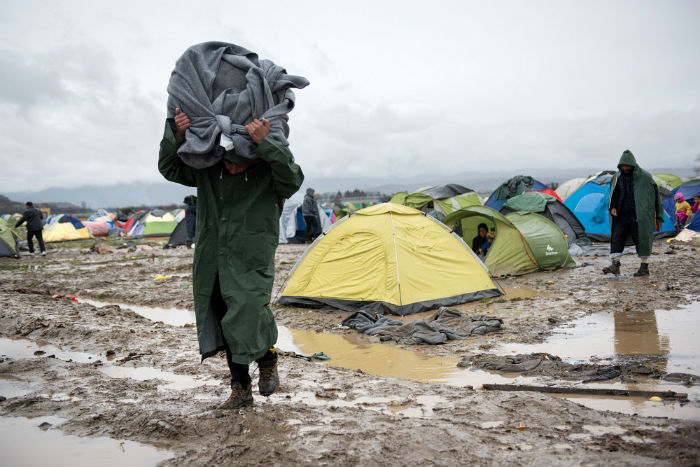By: Anita Makri
Send to a friend
The details you provide on this page will not be used to send unsolicited email, and will not be sold to a 3rd party. See privacy policy.
A word cloud on the back page of the programme, generated from the 2015 Humanitarian Agenda, was a sign of things to come at a conference organised by Médicins Sans Frontières (MSF) in London, United Kingdom, last week.
Refugee is the first word that confronts you, in large font. Then there’s outbreak, followed by migration and — somewhat less predictably — mental health.
The MSF Scientific Days on 20 and 21 May explored how science and innovation can improve healthcare for people fleeing violence, with organisers clearly emphasising the Syrian conflict on the global refugee and migration crisis.
Evidence on mental health had a prominent place in that discussion. Malika Bouhenia, of MSF’s operational research unit Epicentre, presented a quantitative survey of refugees in the Calais makeshift camp in France. Her work documented that most had fled conflict and dealt with violence both in countries they travelled through and in France.
Iro Evlampidou, a doctor with MSF, presented a study of mental health patients at MSF clinics in Greece and Serbia. Mental trauma was the second most common complaint there (after respiratory infections), causing symptoms such as anxiety or depression that were linked to treatment by state authorities.
The evolving area of emergency mental healthcare is just touching the tip of the iceberg.
Anita Makri
Evlampidou was also involved in two studies of psychological stress following the Ebola outbreak in Liberia. I caught up with her to ask about this year’s emphasis on mental health.
People displaced by conflict have always had mental health needs, she told me, but MSF is evolving its response — offering both physical and psychological care as part of a “holistic package”.
Medical officer Benjamin Wood had a similar view: MSF’s mental health work has moved from treating post-traumatic stress disorder to more complex psychosocial approaches, he told me.
Wood presented research on a programme MSF runs at Iraq’s Domiz refugee camp that integrates mental health into primary care — a recommended strategy in poorer countries. Here, MSF offers psychological first aid and psychotherapy for common disorders.
The event showcased different examples of the charity’s approach to mental healthcare, such as individual counselling sessions in Chechnya and psychotherapy via a call centre in Colombia. These showed promise for areas where security challenges might hinder more traditional healthcare.At one point a member of the audience asked about the absence of sexual health in these studies. The presenters spoke of difficulties assessing this in the field — victims of sexual violence may not speak up, or interviews become difficult as people get emotional. So sexual violence concerns are probably underestimated, they said.
This suggests that the evolving area of emergency mental healthcare is just touching the tip of the iceberg.














